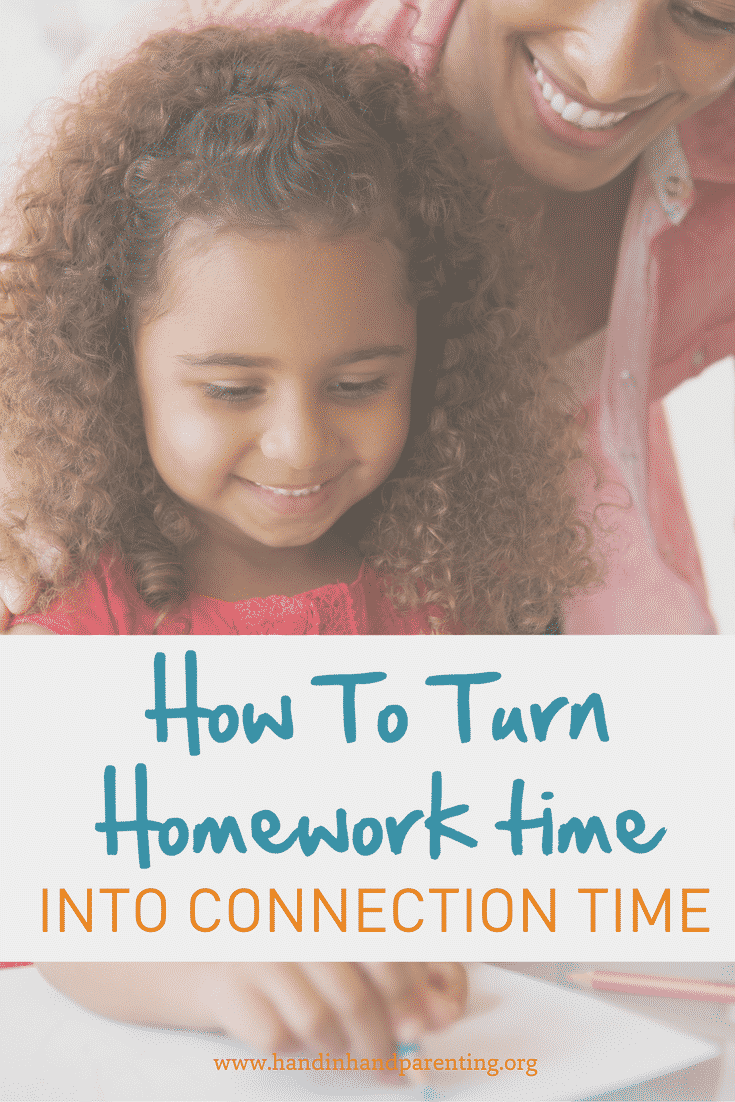![]()
 Too often kids and parents meet in battle over the homework table, but believe it or not, says Hand in Hand's Abigail Wald, homework can be, and should be, a time for connection.
Too often kids and parents meet in battle over the homework table, but believe it or not, says Hand in Hand's Abigail Wald, homework can be, and should be, a time for connection.
Talking to Parent Pump Radio host Jacqueline T.D Huynh, Abigail explained the different viewpoints that parents and kids come regarding homework and how it causes friction. Parents mindsets are often geared toward getting the homework complete and off the agenda while children just want to prolong the process, putting it off as long as possible.
How can parents and children work out a homework plan that works for both sides?
Homework from a Parent Perspective
There are many other beliefs that parents hold about homework that causes added irritation, Abigail says:
- It's the end of our workday and we're tired
- We're trying to end the day
- We're trying to buy time for ourselves
- Our memories of homework are painful
- We have desire for our children to do well
- The idea that homework equals future success
- An attachment that we know best and we want our children to meet us there
- A feeling that we just want to “get it over”
- Wanting to relax with kids, not fight with them
Homework from a Children's Perspective
Children have had a full day away from their parents and it's impossible to know the dramas they might have met. Some of these may include:
- Disappointments
- Spilled food, or went without eating
- Failed to get an invite when other kids did
- Someone refused to play with them
- They publicly messed up
- Embarrassed over saying or doing ‘the wrong thing.'
Children in a public setting learn very fast that it's hard to let their feelings out and so very quickly they stuff them away, Abigail says. They'll spend eight hours of pushing those feelings down so that when they come home and the first thing a parent says is “Let's get our homework done,” it can feel to them like a betrayal.
“Some of them are chatterboxes,” Abigail says, and explain every little wrong. Others might shrug. They don't answer when we ask how their day was. “We mistake that for meaning nothing happened,” says Abigail. “But it means a lot happened!”
Making Homework Time Connection Time
 With pickups, work, activities, and chores crowding out the calendar, the time we do have with children get diminished quickly. It's hard to schedule quality time, but homework can be a time of connection, Abigail says.
With pickups, work, activities, and chores crowding out the calendar, the time we do have with children get diminished quickly. It's hard to schedule quality time, but homework can be a time of connection, Abigail says.
Connecting over homework builds extra bonding time, and supports a child's learning, helping kids confidence and empowering them to own the work.
As our children grow and as homework becomes more essential they are at home even less, so learning to use homework moments as connection times become ever more critical.
How do you go about that? Abigail outlined these 12 points for increasing connection.
12 Ways To Beat Homework Battles
Let them eat! Protein, good fats and fruits are good for feeding the brain. Fill them up first.
Make time to decompress: Ask what they want to do. They might want to silently process in a quiet area, snuggle as you read a book. Some may need to play ball games or dolls. This time is a great time to carve 10 minutes out together using the Special Time tool, where they lead play and you join them.
Plan when: Once things are calm, ask what still needs to be done, or when they want to do homework, and not demanding it gets done. Try, “What do we have left to do on our plate?” and “I wonder, what homework is due?”
Do it their way: Homework doesn't have to be completed sitting at a desk. Just like we have preferences for where we work, read and relax, so do our kids. They might use the added connection to focus when they sit next to you on the sofa, or even on your lap while they work through problems.
Make it Fun. Want to do maths homework upside down? Go for it. Add up funny features on faces. Read the title or the instructions wrong, or in a silly voice. If it's confusing, act confused. “Gee! I wonder what they mean?”
Take the lesser role: Some of us feel uncomfortable when we don't know today's new teaching methods but sitting and having your child show you how it works means they learn by taking the lead. Play around with getting the wrong answers or assumptions to further turn on their inner confidence.
Make it Collaborative: Be present and available rather than standing over your child. When you make homework collaborative you might tick one or two emails off your to-send list or plan the week's meals, and you'll be there if your children need help. Don't underestimate that kind of emotional plug-in that kids feel when you are close by.
Be interested in how to get to the answer, not in whether the answer is right.
Teach by wondering: “I wonder if 6 x 2 is the same as 2 x 6.” or “Oh! I never read that book, what is it about?”
Remember the power of “Not Yet”: When a child doesn't get the right answer take from the Thomas Edison quote, “I have not failed. I have learned 10,000 ways that won't work.” Help kids see mistakes as building blocks to what will work.
Welcome some struggle: Struggle is a necessary route to success, and when a child struggles to get an answer he takes ownership. It's easy for parents to try to shut down the struggle but kids still need to struggle to learn, just as they did as toddlers taking their first steps.
Ride their waves of feelings: Be aware that homework can bring up a deluge of feelings about a child and his or her abilities. They might have feelings about the homework itself, that its stupid or annoying, or that there are other things they want to do, like play. Homework might also trigger feelings they have about the day, their classmates, their teachers or school. Homework becomes a route to offload about all that upset, which is actually emotionally healthy for a child. Often, when they cry or get mad and we sit close, listen and let them get it out, they will find their way back to good thinking, and their homework and they will begin to own it. For empathetic responses, you can use to support your crying child read: 20 Things to Say To Your Child Instead of Don't Cry
To listen to the full podcast go to Parent Pump Radio “Getting Kids to do Homework.”
